Agonizing over writing your resume again? Take the pressure off and try TopResume. It's our top choice for resume writing services and you can use their free resume review before you get started.
Are resume objectives a required part of a solid CV--or are they outdated, unnecessary, and irrelevant?
You'll find many different opinions about what a good resume looks like in the 21st century. Some career experts will tell you that writing an objective for your resume is a waste of time. As professional resume writer Jack Mulcahy put it, "Objective statements have gone the way of buggy whips and high-button shoes." Others argue that resume objectives are useful for very specific purposes.
Want to do meaningful work, earn more, and enjoy life? See how we’re all creating momentum in the face of change and uncertainty.
Before you decide whether to include an objective in your next resume, learn what these statements can do--and what alternatives you have, should you choose to go in another direction.
Also, if you're still searching for a new job and haven't tried ZipRecruiter, we recommend giving it a shot. It's free and easy to apply to a high volume of jobs at once that you like.
What Is An Objective For A Resume?
An objective for a resume is a short, to-the-point summary of your immediate professional goal. Typically restricted to a single sentence, a resume objective states what job you’re looking for, the skills you want to use in that role, and perhaps what kind of work environment you hope to use those skills in.
When Should You Use An Objective On Your Resume?
The main criticism of objective statements is that they focus on what the job seeker wants from the employer, not what they have to offer. For this reason, it’s best to use them only when being very specific about a job title or other aspects of the job makes sense.
It might make sense to use a resume objective if you are:
Changing Careers
The trickiest part of writing a resume for a career pivot is showing the hiring manager how your skills align with your desired career path. An objective can help you focus your resume on your goal, setting the tone for the rest of the document. Just remember to mention what you bring to the table, too. Include your transferable skills in your statement to demonstrate how you can provide value to the employer.
For more information, check out our guide on how to write a resume for a career change.
A Student
If you’re looking for an internship, student job, or part-time job while you complete your education, you probably don’t have a long work history to share. In this case, it’s reasonable to start with your goal instead. When possible, talk about your soft skills like teamwork, time management, or ability to work hard. These will make a positive impression on the hiring manager.
For more information, check out our guide to student resumes.
An Entry-Level Candidate
When you’re a recent graduate or looking for your first job, you’re targeting positions that are low on the org chart. Employers won’t expect you to have a robust skill set or lots of related work experience. A resume objective can help them understand which job you’re targeting and what you have to offer. (It can also help use up some white space on the page–often a problem for first-time job seekers.)
For more information, check out our guide to creating a resume with no work experience.
How Do You Write A Resume Objective?
If you decide to include a resume objective, you should observe the following guidelines:
Keep It Short
Traditionally, resume objectives were a single sentence, e.g., “Award-winning student journalist seeks entry-level reporter role.” However, as summary statements have gained in popularity, it’s become more common to see longer objectives.
Just keep in mind that brevity is part of the point and restrict your objective to one complex sentence or two simple sentences. Recruiters spend about seven seconds reviewing resumes, according to studies. You don’t want to lose your audience in the first few lines.
Focus On What You Have To Offer
Join The Break Community
How will you provide value to this employer if you’re hired? Use your objective to highlight your most essential skills, experience, and qualifications.
Use Relevant Keywords
Scan the job description for keywords that describe the role, its duties, and the most desired qualifications. Using these keywords in your resume and cover letter will help you get past the applicant tracking system and to a real human being’s inbox. Because an objective comes at the top of the page, it’s an excellent place to feature resume keywords.
Sample Resume Objectives (And Why They Work!)
Student Seeking Scholarship Resume Objective
This student is seeking a scholarship to support her journalism career. Her objective works in part because it ties into accomplishments, which follow in the next section of her resume.
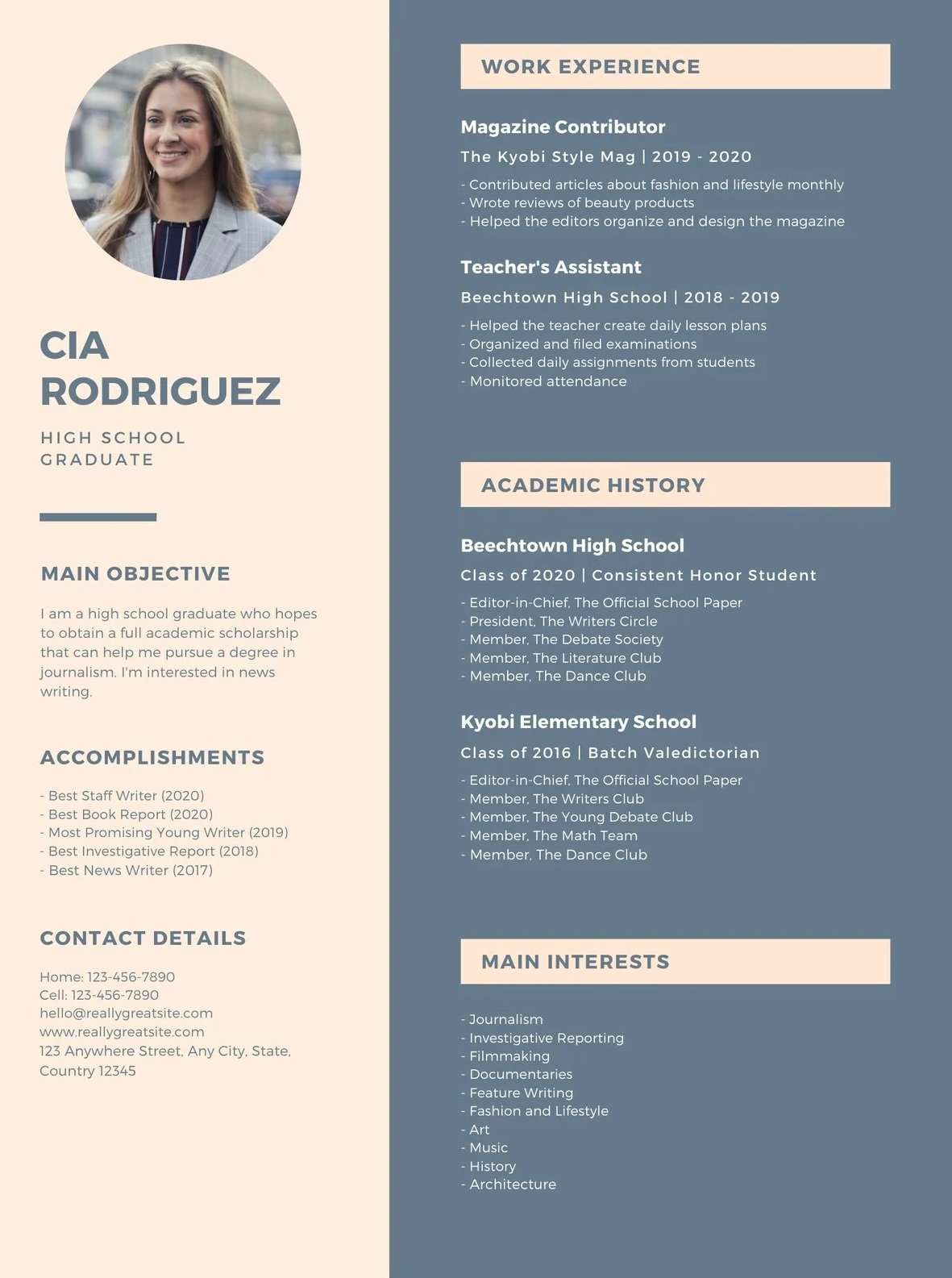
source: canva
Student Seeking First Job Resume Objective
This job seeker is still a student but he focuses his resume objective on what he can give the employer: a track record of academic success, subject matter knowledge, and job skills. He also follows his objective with a skills section.
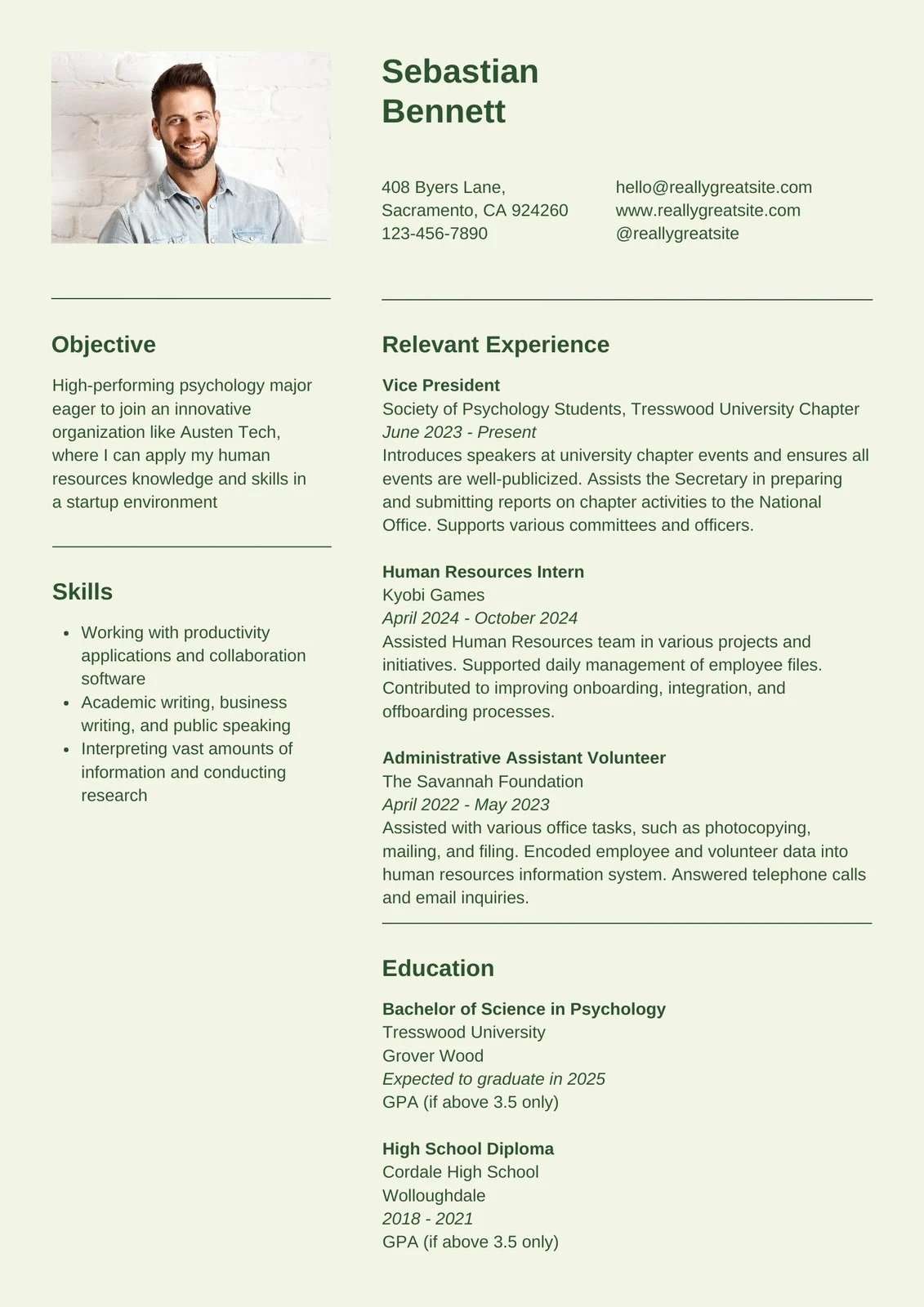
source: canva
Alternatives To Resume Objectives
Not sold on including an objective on your next resume? You have options–some of them preferable for experienced professionals who aren’t making major career changes.
Summary Statement
While an objective statement states what you hope to gain, a summary statement exclaims what you hope to give. It highlights your relevant qualifications and demonstrates how they pertain to the position in question.
3 Key Parts Of A Summary
When crafting a summary you want to focus on three key areas that will culminate in an “elevator pitch” that summarizes you professionally:
- Work history: Do you have relevant experience for the position you’re applying to?
- Skills: Do you possess the necessary skills in order to successfully do the job?
- Accomplishments: What measurable results have you garnered from your past experience through your skills?
Example: Resume Summary Example for Experienced Sales Manager
Multi-faceted, hands-on sales management experience in the business-to-business industry. Ten+ years leading by example in motivating sales teams to unprecedented annual gains. Increased sales in the northern region by 20% by instituting creative sales incentives and vendor partnerships. Hired, trained, and inspired award-winning sales teams, which reduced employee turnover by 34%, retained top performers and generated profits at ten percent above the company average. Implemented customer satisfaction surveys and developed recommendations for product enhancements which were adopted by senior management.
Resume Profile
A resume profile is similar to a summary statement but is more concise. It retains the focus on what you, the candidate, have to offer the employer but focuses on making a short, compelling sales pitch.
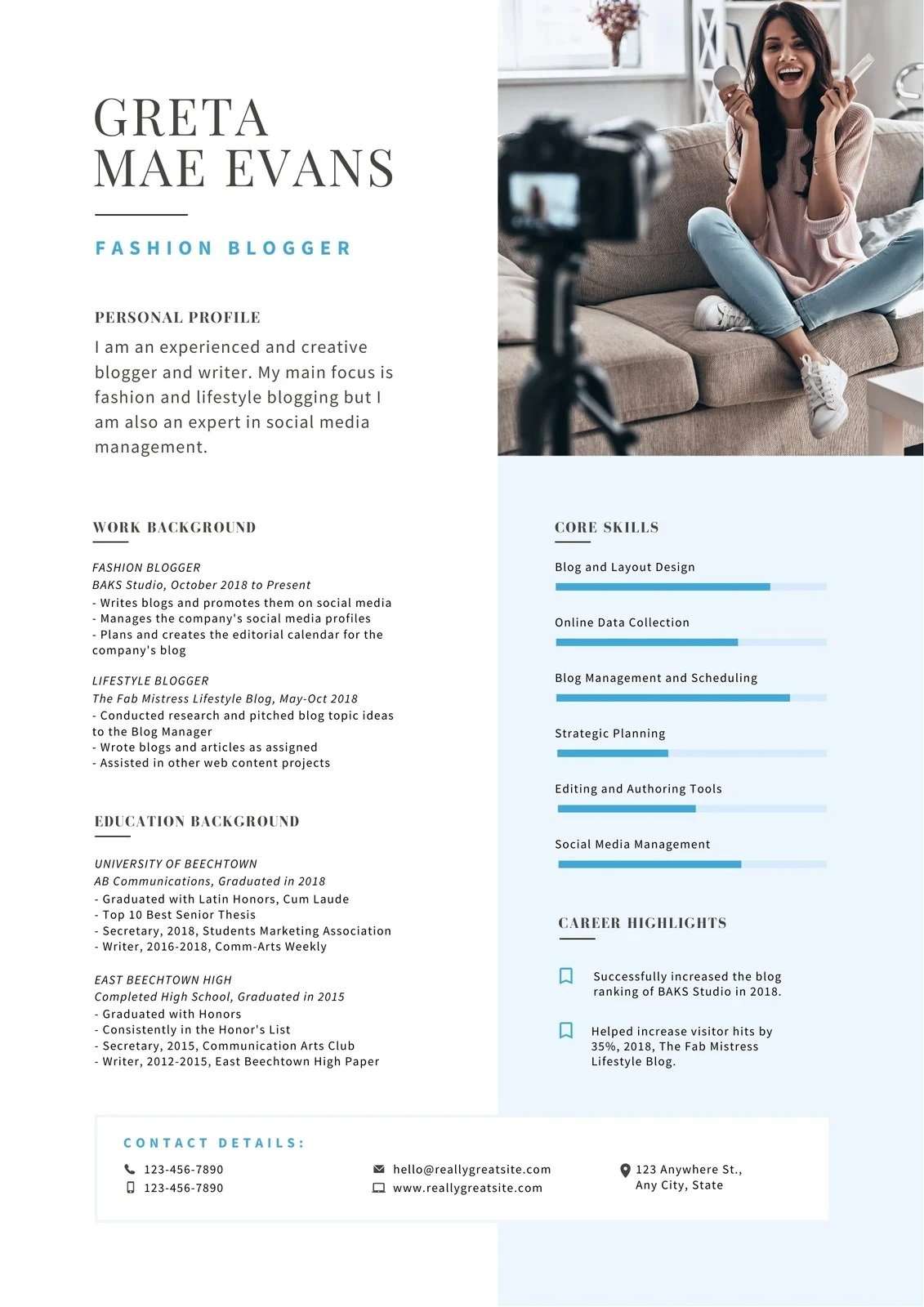
Source: canva
Resume Headline
If you have a LinkedIn profile, you may already have a potential resume headline cued up and ready to go. Your headline should summarize your skills, qualifications, and experience in a way that’s easy to understand at first glance.
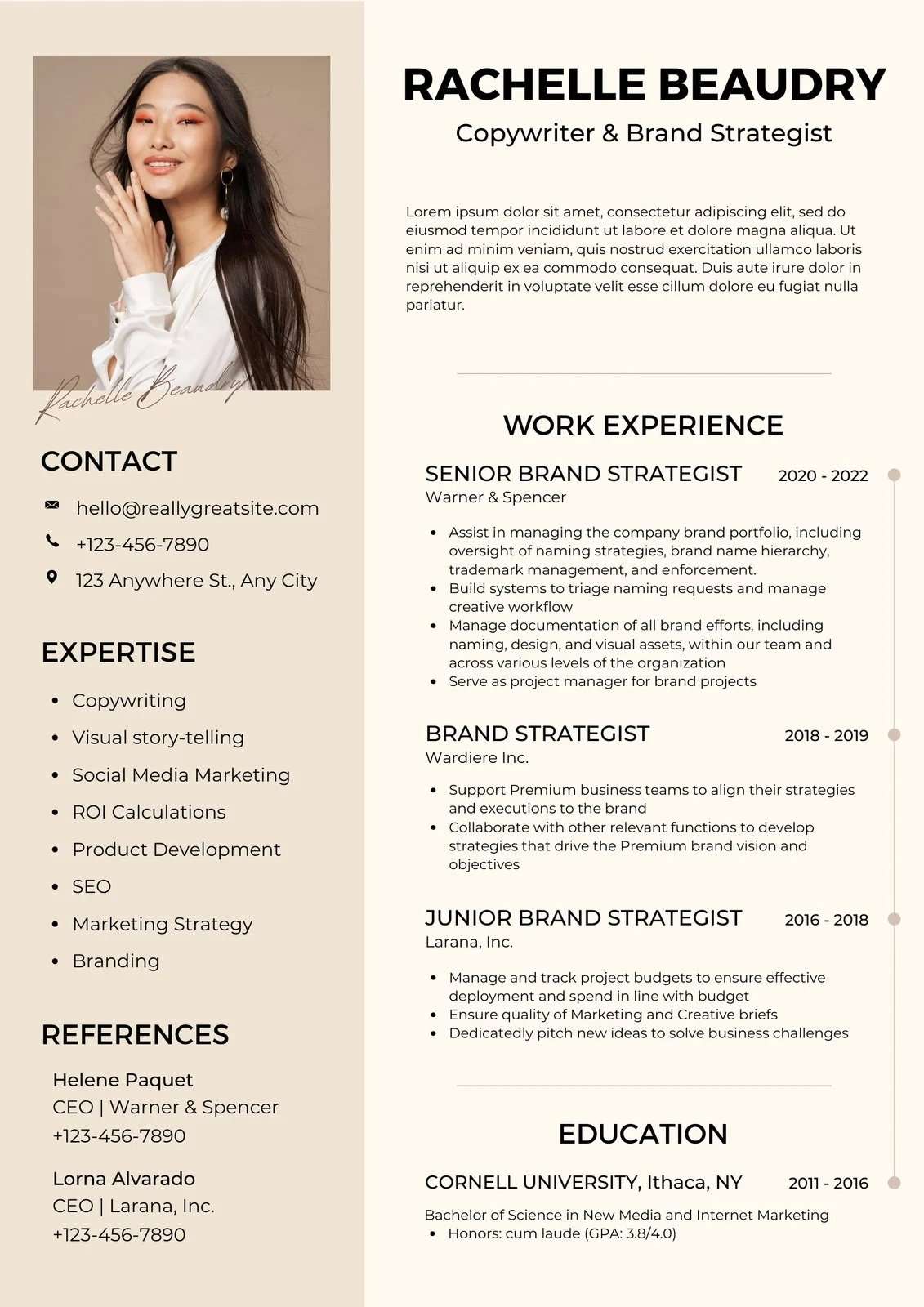
source: canva
Skills Section
Including a skills section makes it easy for resume bots and hiring managers to see what you can do. This is a good choice for experienced professionals, students with a well-developed skill set, or career changers with lots of transferable skills. You can include a skills section at the top of your resume instead of an objective or profile or in addition to one of those sections.
For more information, check out our guide on how to include skills on your resume.
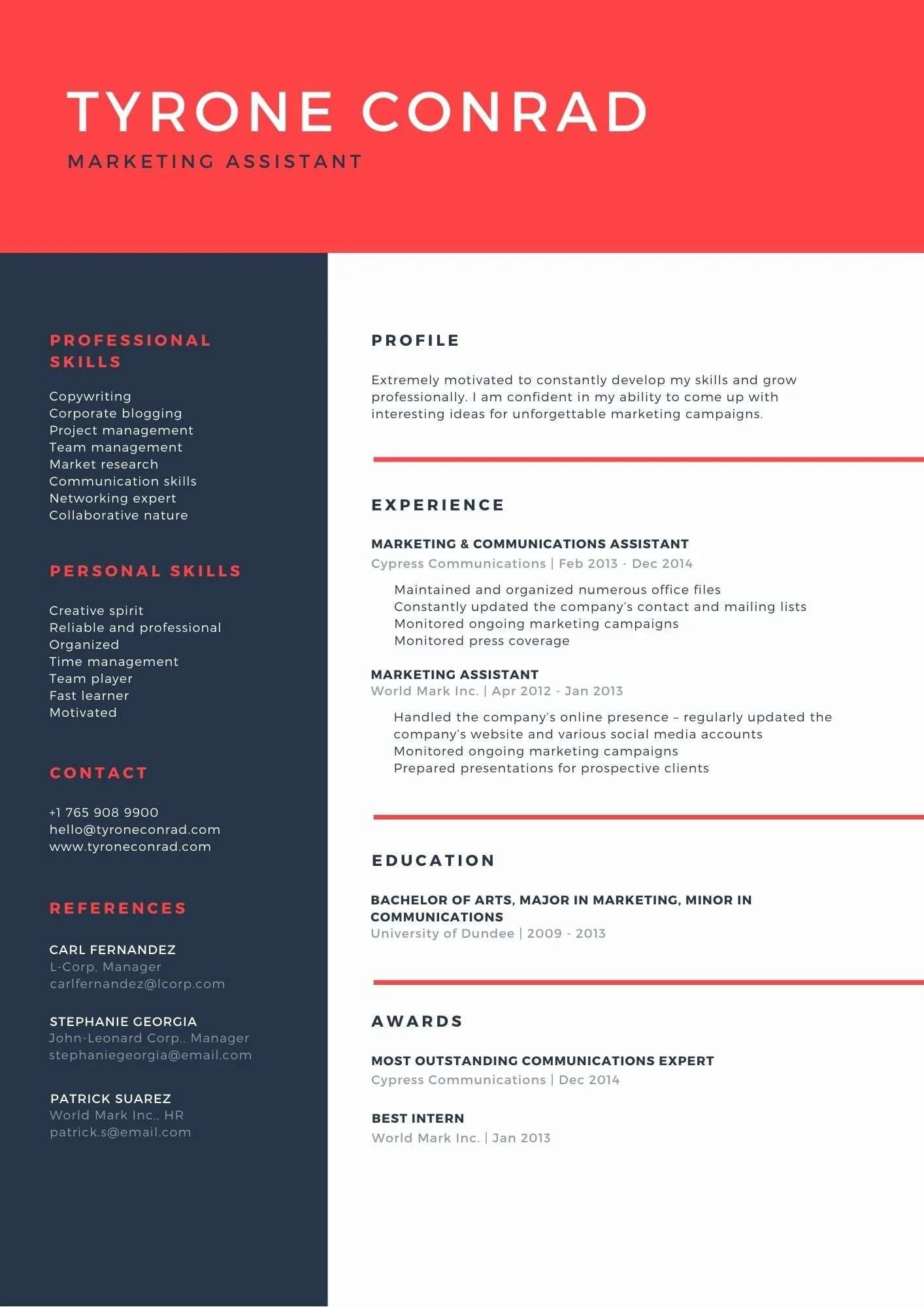
source: canva
Bottom Line
Regardless of whether you choose to use a resume objective, a summary statement, a skills section, or some other resume opener, the most important thing is to lead with your strongest qualifications. The top of your resume is precious real estate. Make sure you use it to show hiring managers what you have to offer.
Ready to take your career to the next level? Head over to ZipRecruiter and find new jobs near you. For additional options, check out the top job posting sites.













